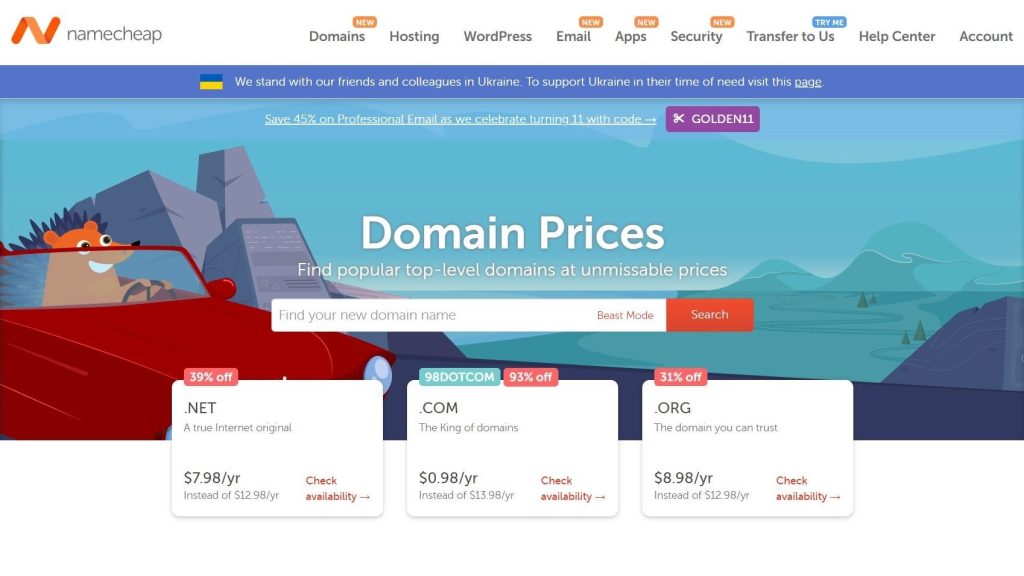Your domain name is the address of your website on the internet. It’s how people find your website and how you build your brand online. That’s why it’s important to protect your domain name with security.
There are a number of things you can do to protect your domain name, including:
Register your domain name with a reputable registrar. There are many different domain registrars out there, so it’s important to choose one that has a good reputation and a strong security track record.
Use a strong password for your domain registrar account. Your domain registrar account is like the front door to your domain name. Make sure you use a strong password that you don’t use for any other accounts.
Enable two-factor authentication for your domain registrar account. Two-factor authentication adds an extra layer of security to your account by requiring you to enter a code from your phone in addition to your password.

Lock your domain name. Domain locking prevents unauthorized transfers of your domain name.
Use a domain privacy service. A domain privacy service hides your contact information from the public WHOIS database. This can help protect your privacy and prevent spam.
Keep your domain name up to date. Make sure to renew your domain name on time and keep your contact information up to date. This will help to prevent someone from taking over your domain name.
In addition to these steps, you can also take some general security precautions to protect your domain name, such as:
Be careful about what emails you open and what links you click on. Phishing emails are a common way for cybercriminals to steal domain names.
Keep your computer software up to date. Software updates often include security patches that can help protect your computer from malware.
Use a firewall and antivirus software. A firewall can help protect your computer from unauthorized access, and antivirus software can help protect your computer from malware.
By following these steps, you can help to protect your domain name from cybercriminals. This will help to ensure that your website is always accessible to your customers and that your brand is protected.
Here are some additional tips for protecting your domain name:
Use a unique password for your domain registrar account. Don’t use the same password for your domain registrar account as you use for other accounts.
Change your password for your domain registrar account regularly. This will help to protect your account if someone does manage to get your password.
Be careful about who you share your domain name information with. Only share your domain name information with people you trust.
Monitor your domain name for suspicious activity. You can use a domain monitoring service to track your domain name for suspicious activity, such as unauthorized transfers or changes to your contact information.
Prevents domain theft. Domain theft is a serious problem, and it can be costly to recover from. By taking steps to protect your domain name, you can help to prevent it from being stolen.
Protects your privacy. When you register a domain name, your contact information is publicly available in the WHOIS database. This can make you vulnerable to spam and identity theft. By using a domain privacy service, you can hide your contact information from the public WHOIS database.
Increases your brand reputation. A secure domain name shows that you are a professional and that you take your business seriously. This can help to increase your brand reputation and attract new customers.
Improves your website’s SEO. Google and other search engines take into account the security of your domain name when ranking your website in search results. This means that a secure domain name can help to improve your website’s SEO.
In addition to these benefits, protecting your domain name with security can also give you peace of mind knowing that your website is safe from cybercriminals.
Here are some additional risks of not protecting your domain name:

Your domain name could be stolen. If your domain name is stolen, the thief could take control of your website and redirect it to a malicious site.
Your domain name could be used for phishing attacks. Phishing attacks are a common way for cybercriminals to steal personal information. If your domain name is used for a phishing attack, your customers could be at risk.
Your domain name could be used for spam. If your contact information is publicly available in the WHOIS database, you could be bombarded with spam emails.
Your brand reputation could be damaged. If your domain name is not secure, it could damage your brand reputation. This could make it difficult to attract new customers and grow your business.
Conclusion
Your domain name is an important asset for your business. By following the tips in this article, you can help to protect your domain name with security and keep your website safe.

